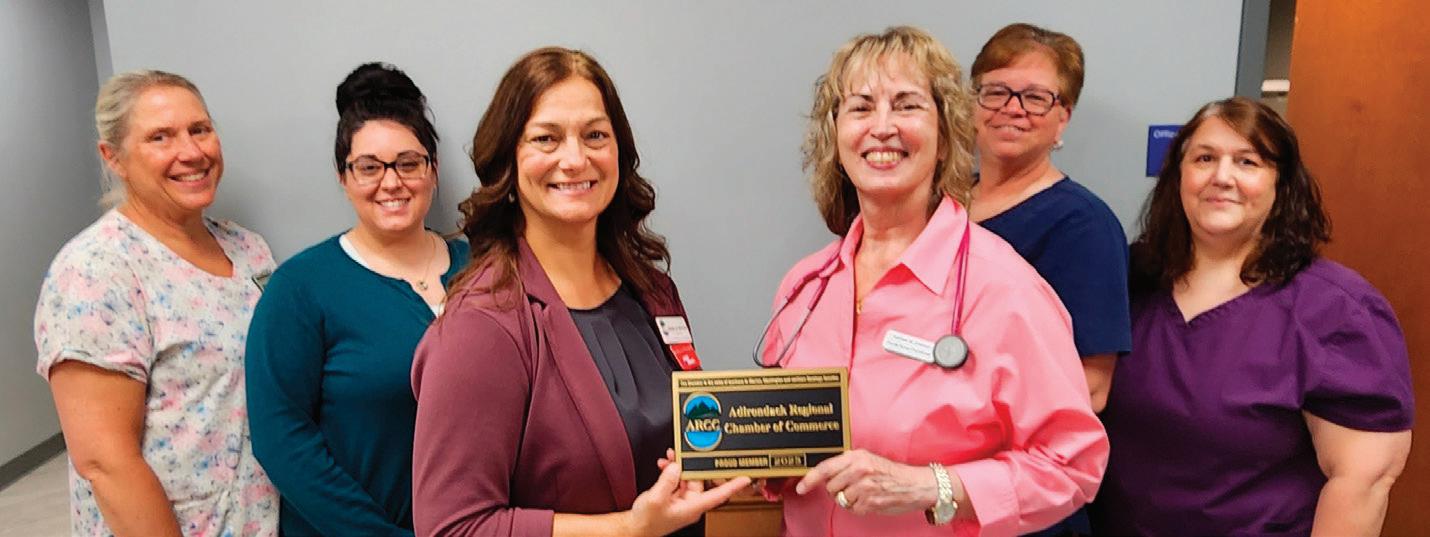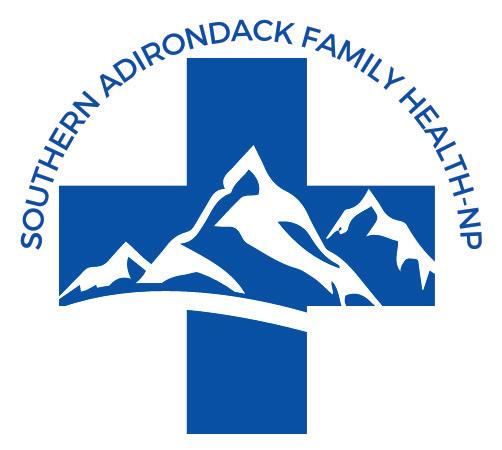
6 minute read
Business Report
Do Grandparents Have Visitation Rights?
BY BARBARA KING
Advertisement
For grandparents, the relationship with a grandchild can be one of the most important things in the world. But what happens when the child’s parents prevent you from seeing or having a relationship with them?
Sometimes, the only recourse left to grandparents is to petition for grandparents’ visitation rights from Family Court. But do grandparents have visitation rights in New York?
Visitation rights vary from state to state, but generally speaking, grandparents’ visitation rights are not as extensive as those granted to the child’s biological or adopted parents. But grandparents do have a statutory right to petition for visitation, even if the child’s parents are unmarried, have been legally divorced or one is deceased.
These limited rights to visitation are not extended to aunts and uncles, great-grandparents, or other family members, except in circumstances where the child’s natural parents and grandparents have both passed away, or are otherwise legally barred from access to the child. Adoption is not a barrier to a biological grandparent’s rights to request visitation, but the child’s best interest, including health, safety, and welfare are the primary considerations.
What if the custodial parent is opposed?
The state of New York recognizes that a child’s parents have the fundamental right to raise their children in the manner they feel is best for the child, including who is or is not allowed to visit with them. As such, a Family Court will grant visitation rights to grandparents who have an already established relationship and/or have been denied access to their grandchild if it is deemed by the court to be in the child’s best interests.
However, New York courts also recognize the benefits of a grandchild having a relationship with their grandparents, such as childcare, education, developmental activities, and basic love and affection.
But if a parent objects to that relationship, then the courts must give additional weight to the parent’s wishes for their child, the reason for objecting to such relationship, and their right to make decisions for the child’s upbringing.
Remember, the law does not provide for an automatic right to grandchild visitation. Rather, grandparents are permitted to petition the court for visitation, since New York acknowledges that visits with grandparents are often an established and important part of a child’s life.
Is court required in seeking visitation?
If the child’s parent or guardian has interfered with the grandparents’ establishing or maintaining a healthy relationship with the child, or other extraordinary circumstances exist, then the court may grant the grandparent’s visitation rights. New York law states that the grandparents of a child whose parents are deceased, or where it can be shown that conditions exist under which the court would see fit to intervene, may apply to the state Supreme Court or Family Court to request visitation rights in respect to the child.
Grandparents often take their case to court when access to the child has been cut off by the parent against the grandparent’s wishes, or the grandparent is seeking to establish a relationship with the child where one did not previously exist. However, a change in the parent’s legal relationship, such as divorce, separation, or annulment, is also a common basis for grandparents’ visitation rights cases.
AARP Study Urges Establishing Brain Health
Screening As Part Of Aging Adult Check-Ups
Brain health is influenced by many factors, including economic and social factors such as income and financial security, housing conditions, environment, and access to nutritious food and exercise.
A new report from AARP and the Global Council on Brain Health (GCBH), “Building Better Brain Health for All People: GCBH Recommendations on Removing Barriers and Improving Opportunities Around the World,” takes these into account and offers recommendations for achieving greater brain health.
“If we want to improve brain health for all, we have to pay more attention to the needs of those at greatest risk of poor health and address social conditions that stand in the way,” said Sarah Lenz Lock, senior vice president of policy and brain health at AARP and Executive Director of the Global Council on Brain Health. “Cognitive decline is not inevitable, and everyone should have the opportunity to experience better brain health as they age.” your health care and seek providers you can trust to listen and understand your cultural values. Make healthy choices whenever possible and try to incorporate the Six Pillars of Brain Health into your lifestyle.
For health care providers: Prioritize prevention and establish brain health screening as an important element in check-ups of aging adults and others at risk. Ensure family caregivers have the information they need to provide the most effective care and include them in consultations as appropriate.

For policymakers: Establish public policies and practices to promote greater awareness and early identification of cognitive and mental health issues, including diverse voices in the policymaking process. Facilitate healthy lifestyles enabling people to proactively promote and sustain their brain health across their lifespans.
Grandparents seeking legal visitation rights with their grandchildren must fi le a petition (a formal written request) with the court in the New York county where the grandchild lives. The petition must describe the basis for such petition including the existence of any relationship with the grandchild; the interference alleged and the manner in which such visitation is in the grandchild’s best interest as well as the proposed visitation schedule.
Once the petition is fi led, the court will direct notice to all parties involved, including the child’s parents, along with any other person who may have fi led for custody. The court may also appoint an attorney for the child, to ensure the child’s voice is heard.
Grandparents must also establish legal grounds for making the visitation request. If one or both parents are deceased, this determination is automatic under New York state law. If one or both natural parents are living, then petitioning grandparents are required to prove that they have an existing relationship with the child, or that the parent/guardian has deliberately and improperly prevented one from being established.
After legal grounds for visitation have been established, grandparents have the burden of proof to show that the grandchild spending time with them is in the child’s best interest.
Courts will consider the following: The age of the child; wishes of the child, if they are of sufficient maturity to express a preference; distance between the proposed location of visits and the child’s home; mental and physical health of the child, parents, or anyone else who may be fi ling for visitation rights or custody; Previous and current relationship of the grandparent with the child and parent; and grandparent’s caregiving skills and disposition toward the parent.
In many court cases, some level of animosity between the parents and grandparents is evident, which is relevant, but not sufficient on its own to deny any request for courtordered visitation. The court must consider the parents’ preferences, and balance factors such as the existing family structure and everyday living situation of the child, as well as the extent of any existing relationship with the grandparents.
Begin by consulting with a family law attorney who can assess the situation and recommend the best course of action. They can also help by fi ling a petition with the court for visitation rights, or modify an existing visitation order, as well as providing the required notice to all parties, and representing you in court.
The report highlights the Six Pillars of Brain Health that can support the ability of individuals to positively affect their brain health. The pillars include exercise, intellectual stimulation, sleep quality, stress management, social engagement, and nutrition.
Recommendations in the report for addressing barriers to brain health are informed by the latest scientific findings and by lived experience of people with cognitive issues.
These include:
For individuals: Be an active participant in
Double H CEO
Continued From Page 1 a strong history and legacy, and obvious commitment and dedication from the entire staff, volunteer, camper, and alumni community.”

She will officially assume the role of CEO in August and plans to relocate to New York’s
For communities: Promote community engagement to raise awareness of brain health and debunk misconceptions. As community leaders, employers can take the lead in creating incentives to encourage healthy behavior. Include community members in decision-making and incorporate diverse perspectives, expertise, and feedback in all education, outreach, and communications initiatives.
“Better brain health enables people’s minds to flourish so they can lead more rewarding lives,” said Lock. “Successful policies and strategies to promote brain health must integrate the many elements that influence cognitive wellness throughout life.”
Adirondack Park where the Double H Ranch is located.
The Double H Ranch, co-founded by Charles R. Wood and Paul Newman, provides specialized programs and year round support for children and their families dealing with life-threatening illnesses. All programs are free of charge and capture the magic of the Adirondacks. For more information, visit www. doublehranch.org.











